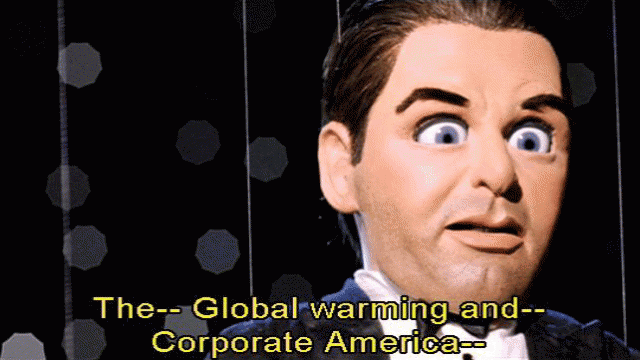This week, we introduce a new series where we ask a question based around a weekly topic, and have our writers riff on them. This week’s topic is the relationship between politics and film.
Anthony Pizzo: We hear so much about “Liberal Hollywood,” but I kind of wonder how much truth there actually is to that claim. Los Angeles is certainly full of very liberal people, and a lot of high-profile stars lean to the left, but a quick glance at Hollywood’s output reveals the majority of movies and TV shows to be about cisgendered, heterosexual white men, with bit parts for everyone else, with most stories celebrating the status quo. Is Hollywood really as Liberal as angry conservative pundits and self-deprecating comedians claim, or is that just another image they’re trying to sell?
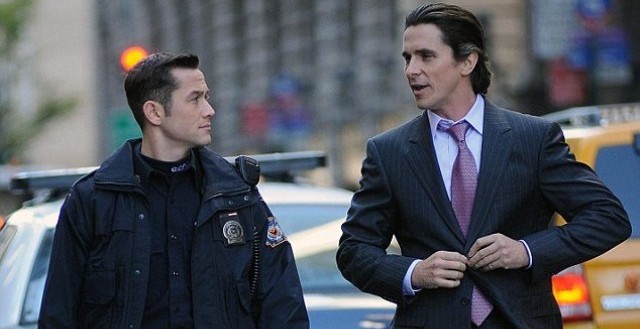 Guy Vollen: The film industry is so fragmented that it’s hard to say, but all I know is, my gut says “maybe.” I think there’s a stronger case to be made in television, where there’s still an emphasis on “can’t we all get along?”-style humanism (which, sad to say, is considered a “liberal agenda” in some quarters). I get the impression that middle-of-the-road liberalism, the kind that keeps left-leaning ideas in the background of the story because they’re taken for granted, is out of step with the times. Liberal voices like Michael Moore or Spike Lee are defiantly so, and hardly speak from a position of power within the industry any more.
Guy Vollen: The film industry is so fragmented that it’s hard to say, but all I know is, my gut says “maybe.” I think there’s a stronger case to be made in television, where there’s still an emphasis on “can’t we all get along?”-style humanism (which, sad to say, is considered a “liberal agenda” in some quarters). I get the impression that middle-of-the-road liberalism, the kind that keeps left-leaning ideas in the background of the story because they’re taken for granted, is out of step with the times. Liberal voices like Michael Moore or Spike Lee are defiantly so, and hardly speak from a position of power within the industry any more.
Let me throw this back: when something like The Dark Knight Rises deploys political imagery, it’s ambiguous enough that critics can interpret it in a variety of ways to suit their own agendas. Is a more explicit political message held back by industry expectations (i.e. the desire to not alienate 50% of your potential audience), or are filmmakers simply adding political symbols as window dressing to make their work seem deeper or more contemporary than it really is?
 Thomas: Hollywood is a Wall Street big business, so it makes sense that they’ll do anything to maximize profits. Thomas Schatz wrote in “New Hollywood, New Millenium” that this includes catering to both sides of the political spectrum, often in the same movie. This means that a majority of films have ambiguous politics that could be interpreted as either liberal or conservative. It makes for an interesting thought exercise to pick out the left- and right-wing strands in a movie. For instance, Dawn of the Planet of the Apes could be interpreted as humanist and anti-war, but one could interpret it as saying “war is inevitable, so it’s worth to be prepared.” This sort of apoliticism is very shrewd, of course, but it is a little dispiriting to think of Hollywood as so dehumanized.
Thomas: Hollywood is a Wall Street big business, so it makes sense that they’ll do anything to maximize profits. Thomas Schatz wrote in “New Hollywood, New Millenium” that this includes catering to both sides of the political spectrum, often in the same movie. This means that a majority of films have ambiguous politics that could be interpreted as either liberal or conservative. It makes for an interesting thought exercise to pick out the left- and right-wing strands in a movie. For instance, Dawn of the Planet of the Apes could be interpreted as humanist and anti-war, but one could interpret it as saying “war is inevitable, so it’s worth to be prepared.” This sort of apoliticism is very shrewd, of course, but it is a little dispiriting to think of Hollywood as so dehumanized.
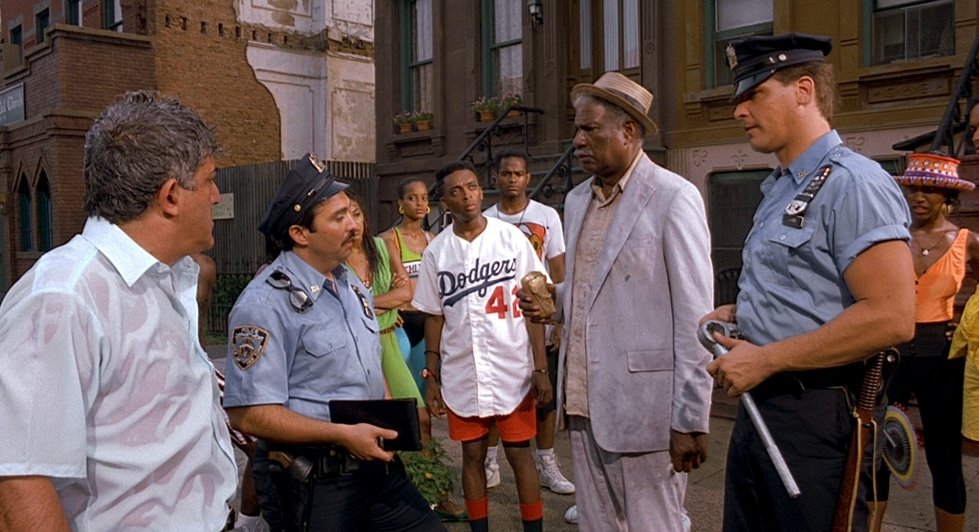 Raoul F. Gonzo: I was discussing this with my friend the other day in a more general (non-film)sense, but I have a hard time ever taking any entertainer’s political statements as anything more than just another form of self-promotion.
Raoul F. Gonzo: I was discussing this with my friend the other day in a more general (non-film)sense, but I have a hard time ever taking any entertainer’s political statements as anything more than just another form of self-promotion.
But when we do see something like a legitimate political thought pop up in a movie, it’s hard to know what to do with it I think. That’s why you see left and right wing alike claiming Nolan’s Batman movies for themselves. I tend to fall pretty squarely in the center in a political sense – I’m a Christian and a Kurosawa-humanist, meaning I tend to hope for the best and expect the worst out of people. So personally, when I see political messages in a movie it alienates me even if it’s something I would agree with, because Politics is all about reducing people to labels and simple identities.
I said all of that to say this – art and politics are a bad mix, in my opinion. I’m glad Spike Lee came up because I consider Do The Right Thing maybe the greatest movie about empathy ever, and a great illustration of what happens when people stop looking at each other as people and start thinking of them as White or Black or Republican or Democrat. I think if a film is using the imagery and language of politics to tell a human story, like Lee and in my opinion Nolan, then the particulars of the politics aren’t as important.
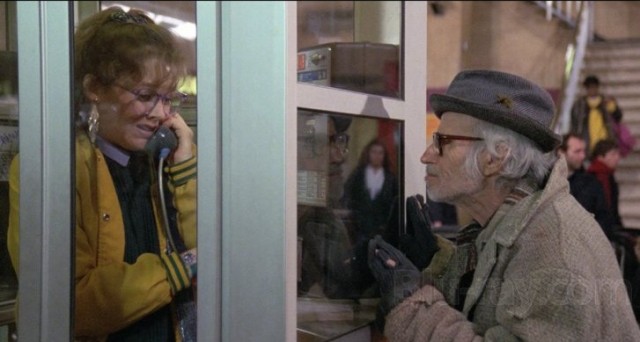 Julius: Hollywood likes to look more liberal than it actually is. Hollywood likes to push a Secular or Unitarian image. The ideals in the movies are very classist, in that they rarely deal about interclass motivation. And, when they do deal with it, it’s from an us vs them tribalistic style where the them will be lumped in a group mentality. One could easily pull apart the awful class politics of John Hughes in the 80s, or the more recent class politics of the new wave of insulated Hollywood children (i.e. The Coppolas…all of them), in order to show how the tribalistic tendencies manifests in all its forms.
Julius: Hollywood likes to look more liberal than it actually is. Hollywood likes to push a Secular or Unitarian image. The ideals in the movies are very classist, in that they rarely deal about interclass motivation. And, when they do deal with it, it’s from an us vs them tribalistic style where the them will be lumped in a group mentality. One could easily pull apart the awful class politics of John Hughes in the 80s, or the more recent class politics of the new wave of insulated Hollywood children (i.e. The Coppolas…all of them), in order to show how the tribalistic tendencies manifests in all its forms.
Tribalism, and its inherent lack of empathy, is one of the most conservative parts of politics. Yet, Liberal Hollywood uses it so frequently because it is such an easy and lazy plot device to fall against for creating tension. The dismantling of tribalistic tendencies in Snowpiercer, which ultimately didn’t choose sides on who it thought was more awful, is proof that it was made outside the Hollywood system. American could use more subversive movies like that.
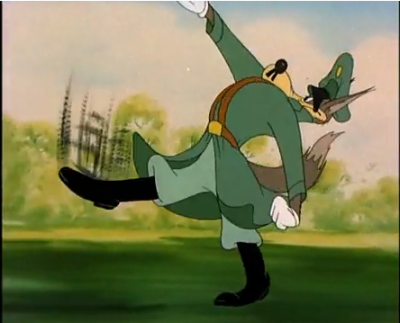 Gillianren: People who say that Hollywood is liberal tend to be thinking of the fact that, yes, more actors/directors/writers tend to support liberal political candidates, often quite vocally. They’re thinking Barbra Streisand. But are they thinking about the studio executives? This is true in print media, too–most journalists are probably liberal, based on various polls, but most newspaper owners are conservative. Similarly, if you look at a lot of the history of Hollywood, you can see a clear pattern of political conservatism shaping things behind the scenes.
Gillianren: People who say that Hollywood is liberal tend to be thinking of the fact that, yes, more actors/directors/writers tend to support liberal political candidates, often quite vocally. They’re thinking Barbra Streisand. But are they thinking about the studio executives? This is true in print media, too–most journalists are probably liberal, based on various polls, but most newspaper owners are conservative. Similarly, if you look at a lot of the history of Hollywood, you can see a clear pattern of political conservatism shaping things behind the scenes.
I mean, look at how long it took before Hollywood made movies where Nazis were evil. Hitchcock’s Saboteur was made literally at a time where it became one of the first of the war films, and the word “Nazi” is never spoken. Five months after Pearl Harbor, the villains are amorphous evil Europeans. Fred Quimby cautioned Tex Avery, upon viewing “Blitz Wolf,” saying, “After all, Tex, we don’t know who’s going to win the war.” That one may be apocryphal, but the attitude toward the Germans during the rise of Nazism was “Well, they may be evil, but we don’t want to lose the market.” Even among Jewish executives who were beginning to know the slightest hints of what was happening to their family back home.
Also look at things like the blacklist. Or consider the fact that the reason the Academy was created was that the studio executives believed that the Oscars would stand in for things like “decent treatment” and “a living wage” and therefore would forestall the creation of unions. It didn’t work, obviously, but that was the intent. Historically, Hollywood has long been a place of liberal creative people and conservative money people.

